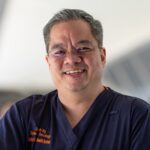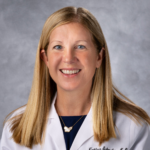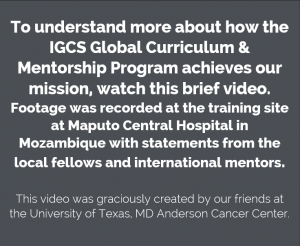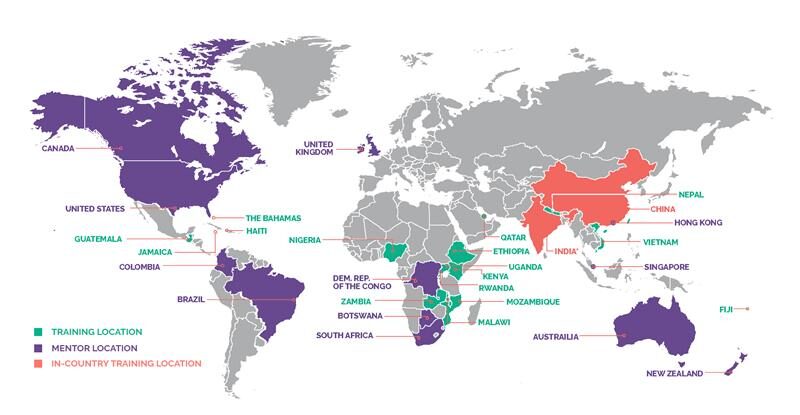Home > Mentorship and Training > Global Gynecologic Oncology Fellowship Program
The IGCS Gynecologic Oncology Global Fellowship Program is a comprehensive two-year education and training program designed for regions around the world that do not currently have formal training in gynecologic oncology.
When physicians in low- and middle-income countries (LMICs) do not have access to specialty training, they are unequipped to treat the high volume of patients presenting with cancer and leaving women without the specialty care they need for the prevention and treatment of cervical cancer and other gynecologic malignancies. Given the rising rates of cancer in LMICs, there is a critical need to train and educate local physicians to address this epidemic.
Program Leadership

Joe Ng, MD
Chair

Linus Chuang, MD
Chair-Elect I

Thomas Randall, MD
Chair-Elect II

Kathleen Schmeler, MD
Immediate Past Chair

Michael Quinn, MD
Global Curriculum & Mentorship Program Founder

Mary Eiken, MS
IGCS CEO
Eventually, the number of trained specialists in these institutions and regions will increase and those who are trained through the Global Curriculum will become the teachers and mentors of future generations. With more skilled healthcare providers dedicated to improving care for women with gynecologic cancer in these regions, there will be greater access to quality care.
Training Sites and Mentor Locations

Global Gynecologic Oncology Fellowship Program Announcements
Read the latest stories and news about IGCS’ mentorship and training initiatives.
